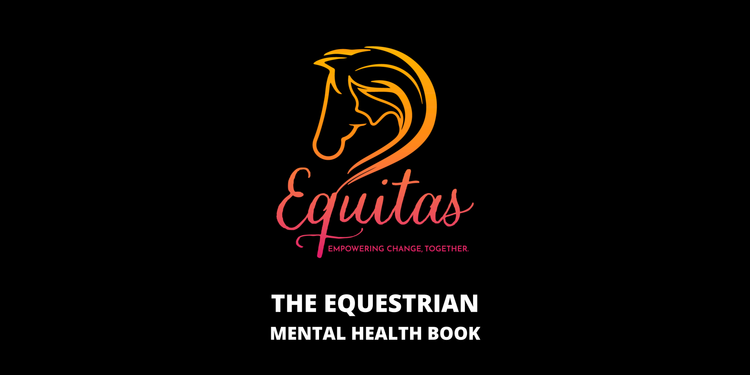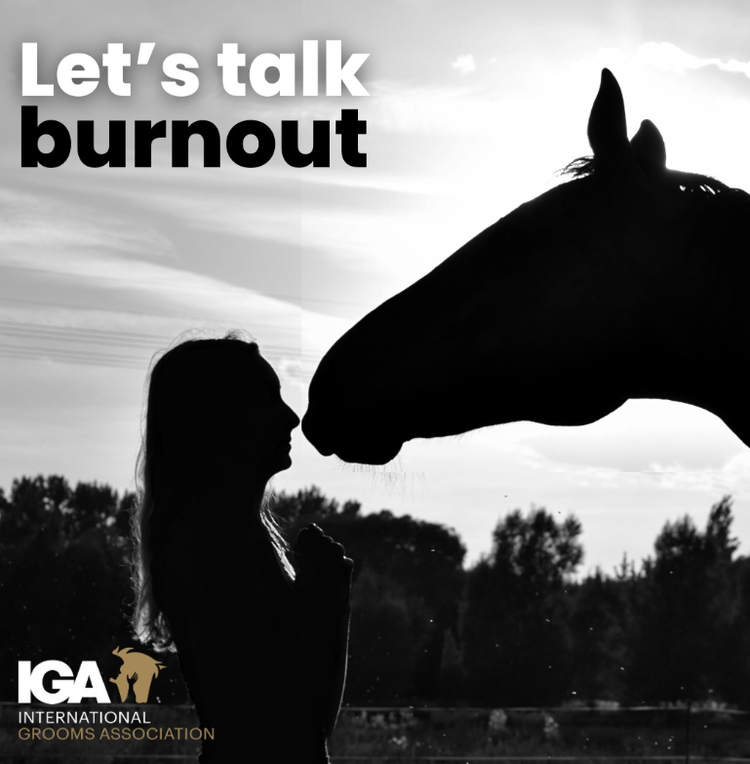Out of Love: Breaking Up With A Job You Loved

*Content Warning: Mention of Self Harm
A few years ago I got a job in a stud yard. And it was amazing. I was learning so much and everything was new and exciting. I have always loved horses and this was me living my best life. I got to care for the animals I loved and on-site accommodation meant I didn’t even have to travel to go to work!
However when I started, COVID lock-downs were still in effect meaning that both living and working full time on site left me extremely isolated. In some respects working in the yard was good because, unlike most people, working with horses was deemed a “required” job, so although in-person socialisation was restricted, I still saw co-workers every day and was still outside in the fresh air. This was definitely a plus, but I guess I never really left that isolation even after everything opened up again. It turned into the kind of rut that needed a serious shock to the system to get out of.
"These small things, over the course of three years added up to me no longer feeling safe in the place I lived and worked."
In addition to the isolation, the working conditions and how I was being treated began to decline. It started with a series of little things; taunted for asking questions, unhelpful ignorance in co-workers, night shifts and early mornings leading to persistent exhaustion, regular unpaid overtime and no real breaks – an expected part of working the equestrian industry for the most part. These small things, over the course of three years added up to me no longer feeling safe in the place I lived and worked and yet not recognising that feeling in myself. All of this, on top of the isolation and I found myself seriously considering self-harm.
The first time I considered it, it probably should have acted as a warning for me to get out but I told myself that there was nothing to be really worried about; that everything was actually okay and I was only being dramatic. At the same time, I started wearing a rubber band around my wrist and began doing things that put me in dangerous situations, both physical and emotionally.
But I still told myself that everything was actually okay and in the words of ‘Devil Wears Prada’s’ Emily, “I love my job, I love my job, I love my job”.
Earlier this year things came to a head after I’d been on night shift for almost the entire season (4 months). My schedule had been five nights on, two nights off from stretching from early January through to the end of April.
I’m a night owl and I loved foaling the mares and watching the little baby horses learn to stand, walk and drink. But doing the night shift is actually very bad for your health. It messes with your circadian rhythm and in the long term can cause conditions like chronic insomnia and depression.
For me, it meant that I was more isolated than usual. I wasn’t getting enough sleep to make up for the fact that I was awake all night and because I was tired, I wasn’t dealing with stress well. My eating habits were irregular and unhealthy and I found myself either not eating, or bingeing processed foods and sweets.
At the end of April, the lack of sunlight, human contact and sleep, teamed with increased stress and I had hit a wall (figuratively, not physically). A casual moment of insensitivity from a superior left me saying “I can’t do this any more” and so in an act of self-preservation I packed my stuff up and left.
In the months since, a fog that I hadn’t even realised was clouding my mind, has lifted. I’ve started therapy and I realise that setting boundaries is very important and especially in difficult situations, where the place and position is one you love, but the situation has turned sour.
My goal is that in the future, having learned from this experience, I will have a clearer understanding of my limits. Recognising when something transitions from being a labour of love to a burden is crucial.
It's perfectly okay to say no when the joy fades and to make a change for the sake of my well-being.
This journey has taught me the importance of self-awareness and the significance of prioritising my own happiness. Everyone deserves the chance to reclaim control over their lives and relationships and I want to inspire others to recognise when they too might need to step back and evaluate what truly brings them joy. In doing this, I believe we can collectively empower each other to make brave decisions for ourselves. Transformation starts with acknowledging our struggles and embracing the courage to change, leading us to a more fulfilling and balanced life.
It’s never too late to reassess, to choose what serves us best.
If you or someone you know is struggling with mental health, feelings of isolation, or thoughts of self-harm, it's important to seek help. You are not alone, and there are resources available to support you.
Please reach out to a trusted friend, family member, or mental health professional. You can also contact one of the following organisations for confidential support:
- Ireland:
- Samaritans Ireland: Call 116 123 or visit samaritans.org/ireland
- Pieta House: Call 1800 247 247 or text HELP to 51444 or visit pieta.ie
- United Kingdom:
- Samaritans UK: Call 116 123 or visit samaritans.org
- USA:
- National Suicide Prevention Lifeline: Call 1-800-273-TALK (8255) or 988, or visit suicidepreventionlifeline.org
- Crisis Text Line: Text HOME to 741741 or visit crisistextline.org
- Europe:
- SOS Helplines (Various European Countries): Visit soshelplines.com for local helplines across Europe.
- Mental Health Europe: Visit mhe-sme.org for mental health resources and support within the European region.
- International:
- Crisis Text Line (Global): Text HOME to 741741 for the US/Canada, 85258 for the UK, or 50808 for Ireland. Visit crisistextline.org for more information.
- Befrienders Worldwide: Visit befrienders.org to find helplines across various countries.



